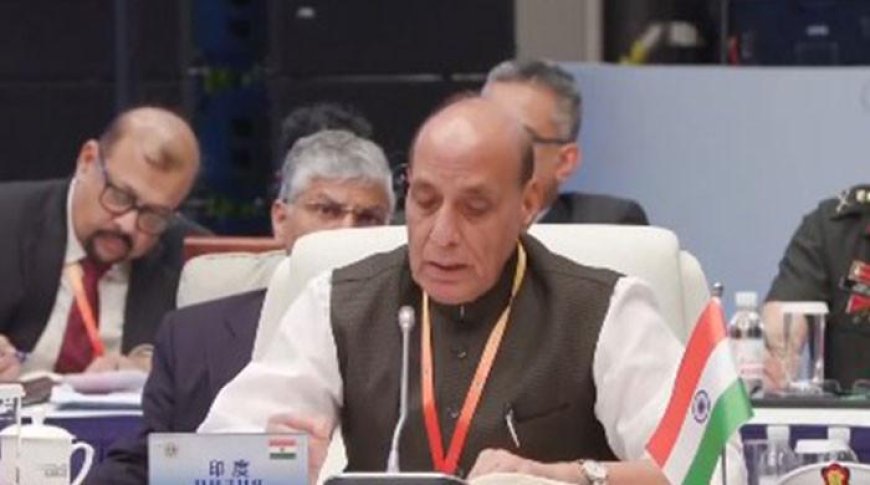India Refuses to Sign SCO Statement Mentioning Balochistan Terrorism
India declined to sign a joint statement at the SCO meeting in China due to references to terrorist activities in Pakistan's Balochistan. The meeting failed to reach a consensus on the issue, leading to the absence of a joint document. The development follows tensions between India and Pakistan after recent armed conflicts.

India's Defence Minister Rajnath Singh attended the SCO Defence Ministers' Meeting in Qingdao, Shandong province, China on June 26, 2025.
India declined to sign a joint statement issued by a high-level Shanghai Cooperation Organisation (SCO) meeting in China after it mentioned terrorist activities in Pakistan's Balochistan. The SCO Defence Ministers' meeting's joint document also did not reference the Pahalgam incident, where several tourists were killed in Indian Illegally Occupied Jammu and Kashmir (IIOJK).
The SCO huddle in Qingdao brought together ministers from 10 member states, including Russia, China, India, and Pakistan. The meeting decided not to issue a joint statement due to India's refusal and lack of consensus on the terrorism issue.
Pakistan's Foreign Office clarified that Defence Minister Khawaja Asif would represent Islamabad at the SCO meeting, with no scheduled meeting between him and his Indian counterpart Singh.
Earlier, National Security Advisor (NSA) Lt Gen Asim Malik attended a meeting of the secretaries of the Security Council of SCO Member States in Beijing, China. He reiterated Pakistan's stance on global and regional situations and contributions to peace and security.
Defence Minister Singh emphasized New Delhi's concerns regarding terrorism at the SCO meeting, urging member countries to take a principled stance on the matter. Defence Minister Asif pledged Islamabad's commitment to SCO's principles and objectives, stressing the importance of a peaceful and stable Afghanistan for regional prosperity.
Asif called terrorism a common threat that must be addressed collectively, urging states to refrain from politicizing joint efforts against terrorism. He condemned terrorist attacks in IIOJK and called for peaceful dispute resolution through dialogue and mediation.
On the sidelines of the meeting, Minister Asif engaged with counterparts from Tajikistan, Iran, Kazakhstan, and China to discuss shared security priorities and collaboration.
According to the source: The News International.
What's Your Reaction?
 Like
0
Like
0
 Dislike
0
Dislike
0
 Love
0
Love
0
 Funny
0
Funny
0
 Angry
0
Angry
0
 Sad
0
Sad
0
 Wow
0
Wow
0
















































































































































